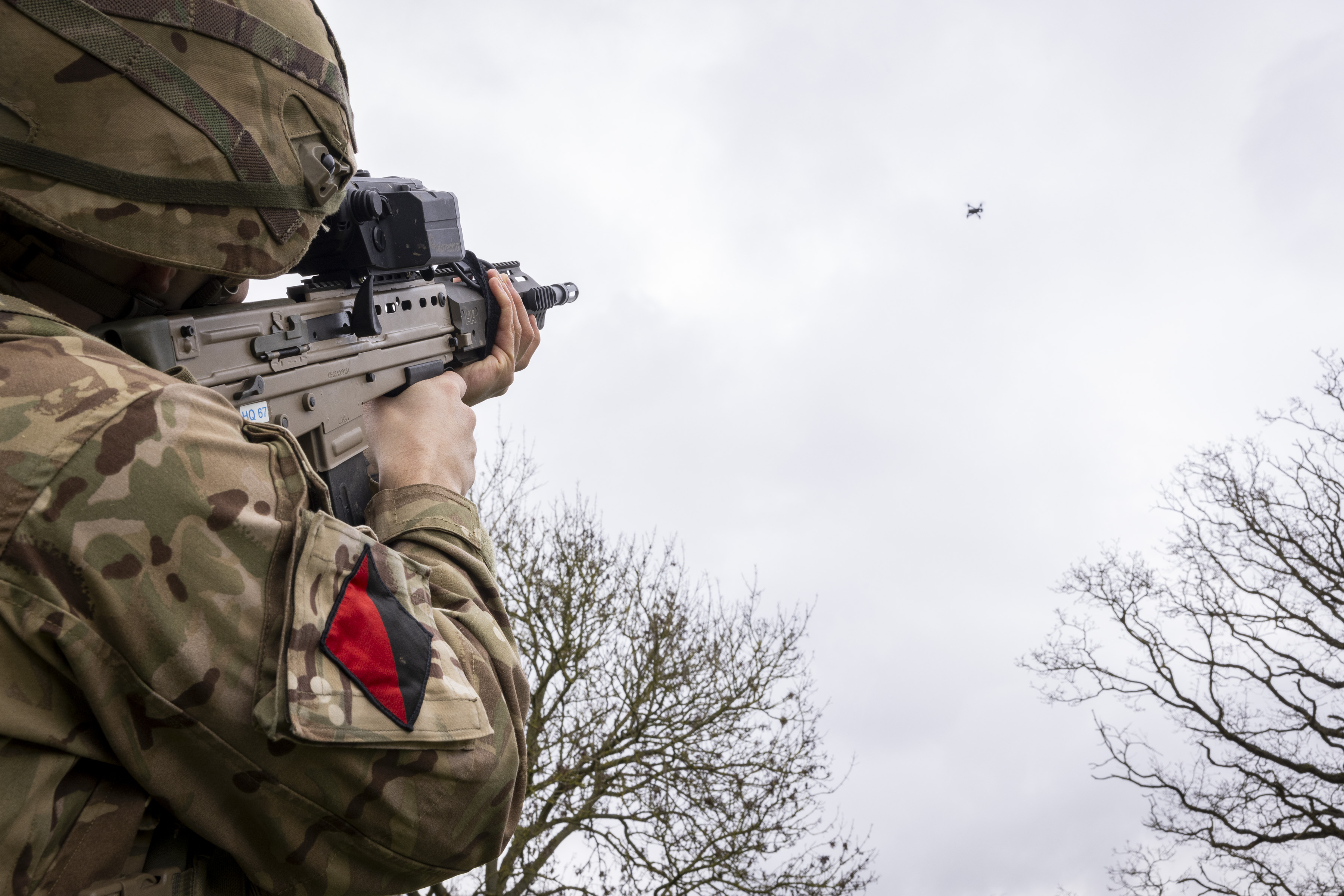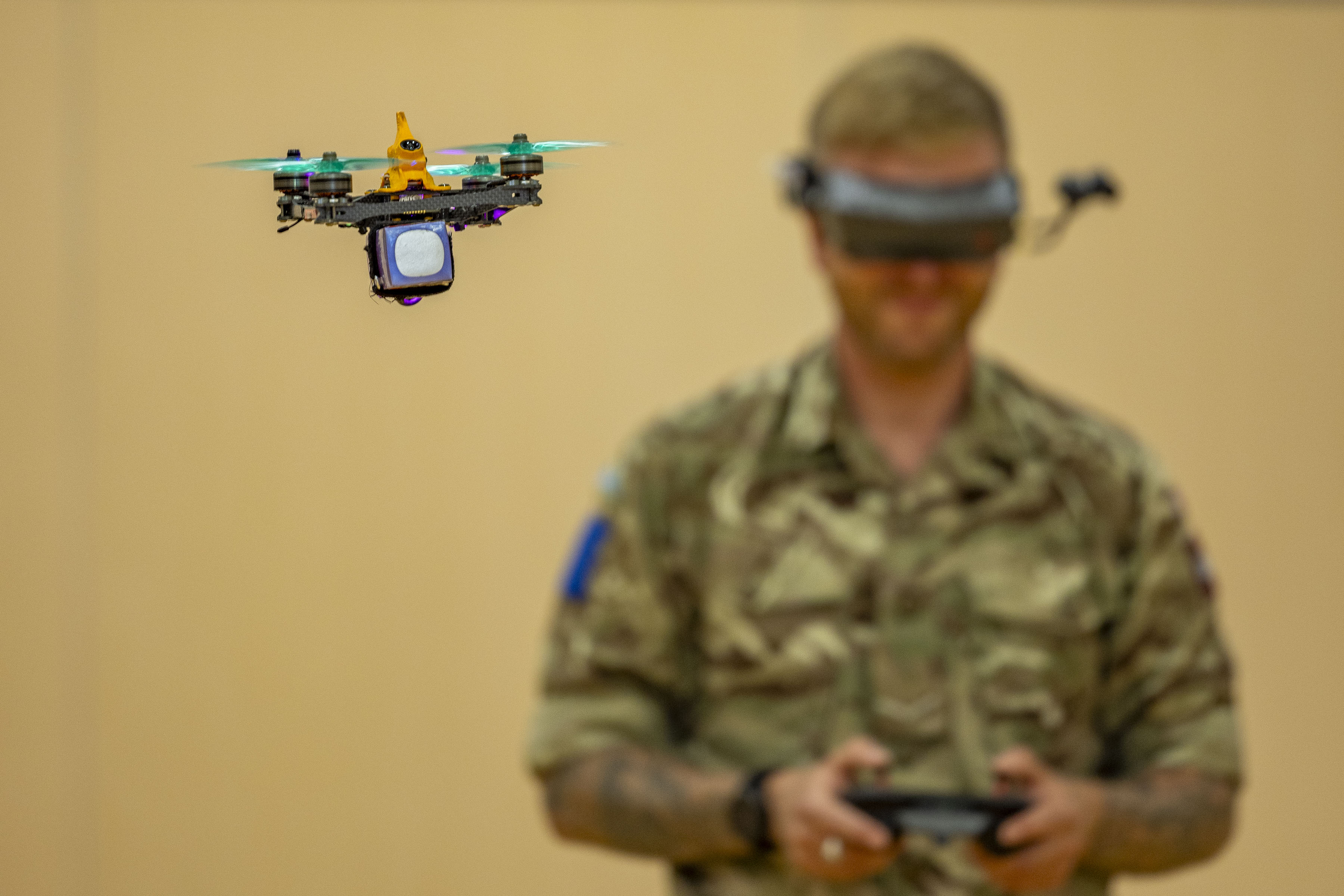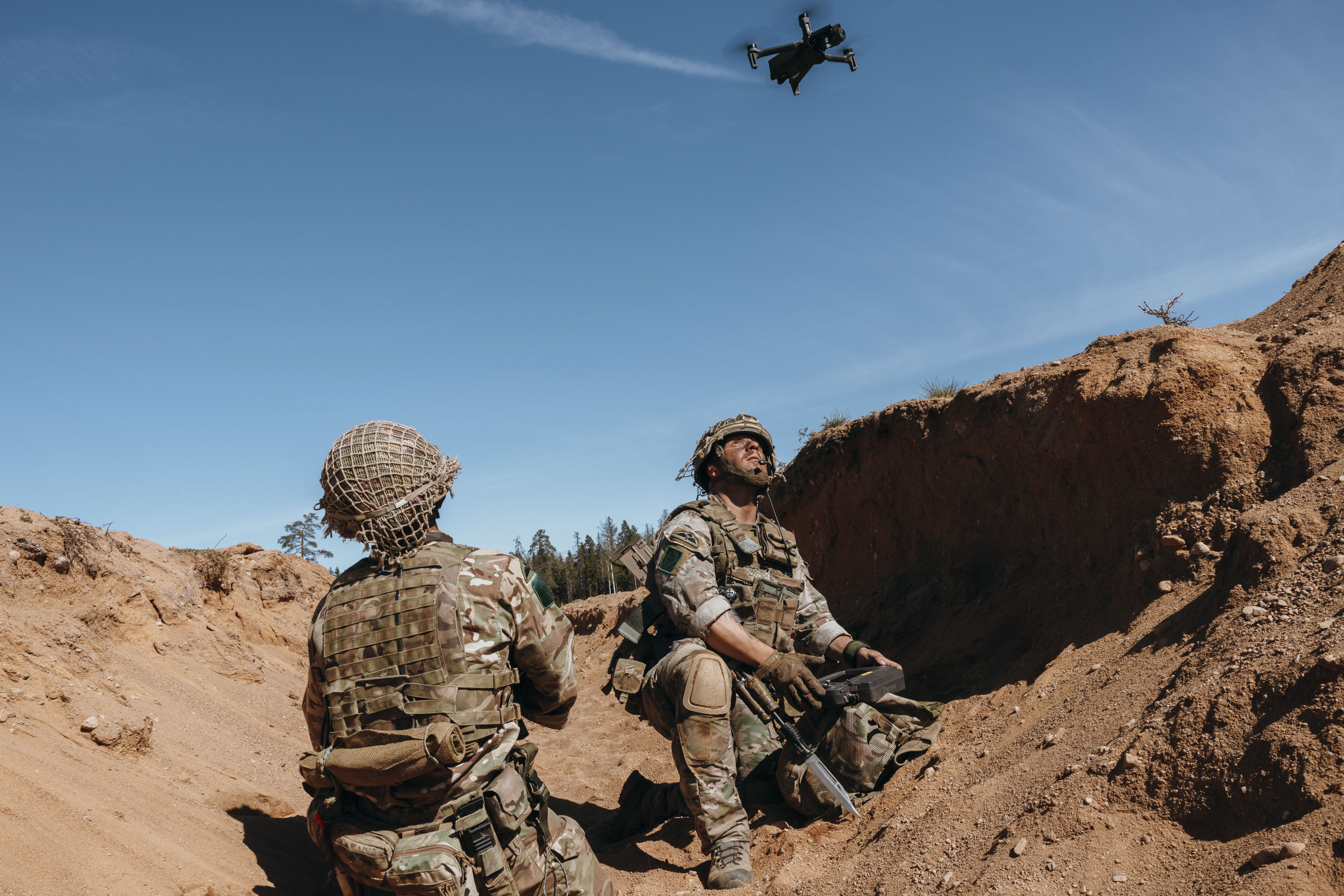British Soldiers test drone flying skills

Above: Lance Corporal Harry Hopes from 13 Air Assault Support Regiment, Royal Logistics Corps (RLC), observed a drone using the newly issued SmartShooter SMASH, Smart Weapon Sight Fire Control System, to trial out the Artificial Intelligence (AI) at Fingeringhoe Ranges.
Courtesy British Army
Soldiers’ skills as pilots have been put to the test as the British Army works towards flying ‘kamikaze drones’ on one-way missions to find and strike targets.
First Person View (FPV) Uncrewed Aircraft Systems (UAS) provide a precision strike capability on the battlefield and are being used to great effect by the Ukrainian Armed Forces.
Flown using a virtual reality headset and carrying small explosive charges, the manoeuvrability of FPV UAS means they can punch above their weight, such as flying through an open hatch to destroy an armoured vehicle by exploding inside it.

As part of Project Lewes - the Army’s wide-ranging work to integrate new technologies and capabilities into its existing forces to improve lethality - troops are being trained to fly FPV UAS as use of the technology is developed.
The 16 Air Assault Brigade ran a screening session at Colchester’s Merville Barracks to find soldiers among its existing UAS pilots with the aptitude to join the jHub Drone Academy and develop their skills.
The jHub is part of Strategic Command and aims to grow the military’s capabilities through the adoption of innovative technology faster and better than our adversaries. Working with the Army’s Combat Manoeuvre Centre, the Drone Academy project has developed and delivered a distributed training solution for FPV flying for all three services.
Currently infantry units are issued with the Parrot and Black Hornet UAS to use for reconnaissance, with soldiers completing a three-week course to qualify as pilots. FPV drones lack the GPS and stabilisation software fitted to conventional drones so are harder to fly but this makes them less vulnerable to jamming and more resilient on the battlefield.
Sergeant Adam Barnes, the senior UAS operator in 2nd Battalion The Parachute Regiment (2 PARA), said: “While it is harder to operate, an FPV UAS is a much simpler, more adaptable and cheaper bit of kit. With a skilled pilot and the right UAS, you can use them to strike targets as well as carrying out reconnaissance.
“An infantry unit equipped with FPV UAS can fly them to attack targets that it would otherwise have to call in mortars, artillery, or an air strike to hit. It shortens the kill chain and gives a commander more options, making for a more efficient use of resources.”
FPV UAS originate in drone racing and the training, delivered by commercial partner Point Zenith, provides soldiers with an FPV UAS and obstacles for flying practice and a laptop computer loaded with a sophisticated racing simulator.
The 2nd Battalion The Parachute Regiment has set up a drone racing club to encourage interest in the pursuit among its soldiers.
“This is a military skill that we can develop through a competitive hobby,” Sgt Barnes said. “Learning to fly FPV drones is the difficult part and then how to use them tactically is just a further skill to add on.”

Among those selected to join the programme was Lance Corporal Morgan McConnell, of 3rd Battalion The Parachute Regiment. On recent training in Estonia, he piloted Parrot drones on reconnaissance flights during a live fire trench clearance operation while enemy drones hovered overhead to scout the paratroopers’ actions. He said: “Flying drones is something that I enjoy and it’s been a different skill to develop. The Parrot has basically got an autopilot and you can be reasonably confident at flying it within a few hours. FPV takes a lot more effort and skill because you’ve got total control of it and it’s going to take time to get to the stage of flying it instinctively.
“I’m looking forward to the challenge and it’s interesting to be working on a technology that is developing, particularly when it gets to adding munitions into what we're doing.”
As the British Army’s highest readiness formation, 16 Air Asslt Bde is at the forefront of UAS and counter-UAS operations. It is the first to be issued with the SMASH sight, which mounts on the standard issue SA80 A3 assault rifle and uses image processing software to help soldiers shoot down UAS.













